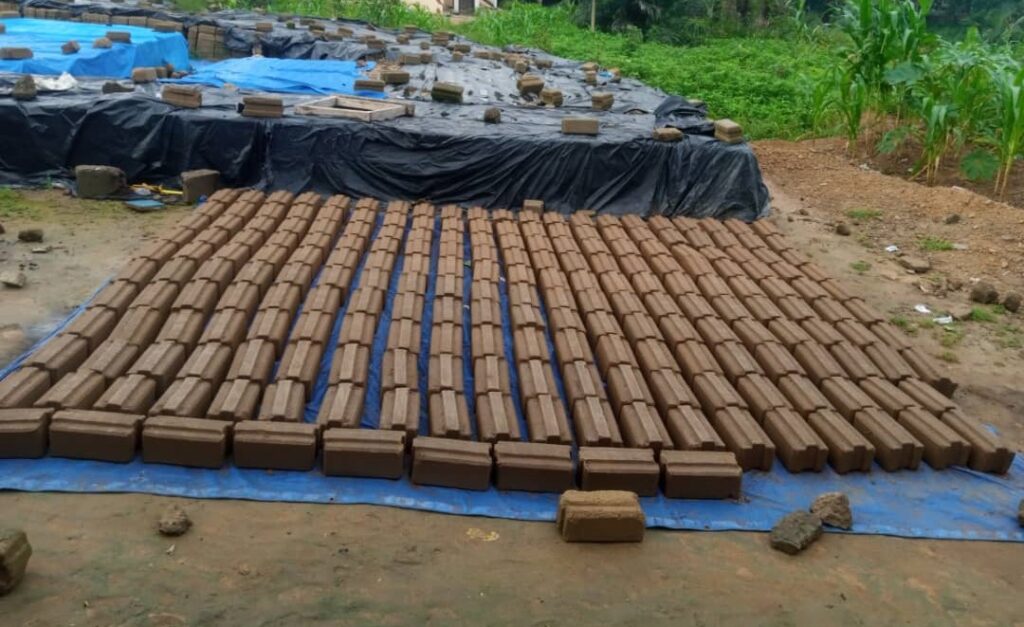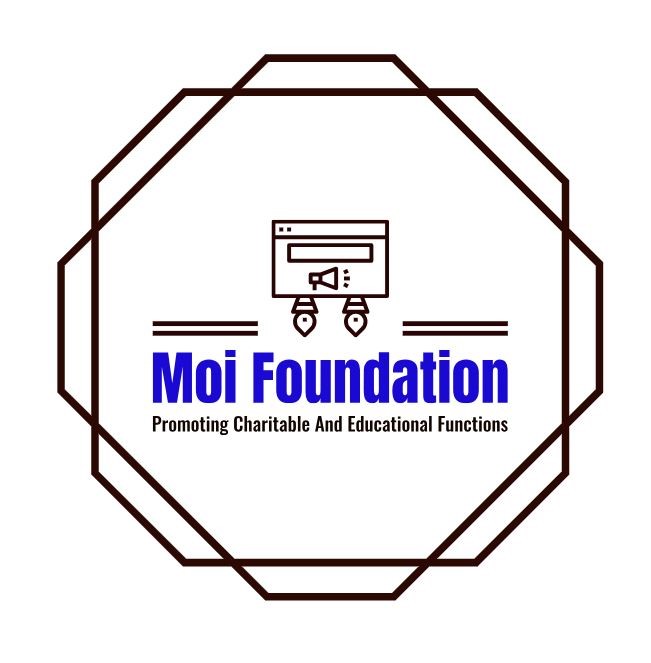
The Moi Foundation’s Community Development initiatives tackle challenges in underserved rural communities in Sierra Leone. By addressing immediate needs and fostering long-term solutions, the foundation creates lasting impacts. Its focus includes improving access to healthcare, education, clean water, and electricity while promoting sustainable practices for community empowerment. The goal is to uplift living standards, reduce poverty, and foster economic growth for a brighter future.
Supporting Infrastructure Projects
One of the foundation’s key areas of focus is the construction and improvement of infrastructure in communities that lack access to essential services. This includes the building of schools, healthcare facilities, roads, electricity and community centers that serve as hubs for social, educational, and economic activities. By improving access to critical services and transportation, the foundation helps create the foundation for a better future for local populations.
Build and Renovation:
The Moi Foundation invests in building and renovating public infrastructure, such as community centers, schools, and healthcare facilities, which serve as hubs for community activity, education, and health services, ensuring residents have access to vital resources.
Interlocking Stabilized Soil Bricks (ISSBs) for Construction: The foundation uses ISSBs as an alternative building material. Made from locally available soil stabilized with minimal cement and compressed into interlocking bricks, ISSBs are cost-effective, eco-friendly, and reduce reliance on imported materials. This approach allows communities to build durable, affordable, and climate-adapted structures with minimal environmental impact. Ideal for the region’s climate, ISSBs support sustainable construction while aligning with the foundation’s commitment to eco-friendly development that addresses immediate and long-term needs.
Roads and Mobility:
In rural Sierra Leone, poor road infrastructure is a significant barrier to economic and social development. Many communities are isolated due to limited or inadequate road networks, making it challenging for people to reach markets, healthcare facilities, schools, and other essential services. This lack of connectivity can hinder trade, limit access to medical care, and restrict educational opportunities, all of which are critical for improving the quality of life. Recognizing this challenge, the Moi Foundation is dedicated to supporting road construction and improvement projects that enhance transportation infrastructure. By building and upgrading roads, the foundation helps to connect remote villages to urban centers, enabling residents to more easily access vital resources and services. Improved roads also facilitate the movement of goods, which boosts local economies by enhancing trade and business opportunities. Additionally, better transportation networks reduce travel time and improve safety, ensuring that people can travel with greater ease and security. Ultimately, the Moi Foundation’s Road projects contribute to fostering greater mobility, which is essential for the overall social and economic advancement of rural communities.
Energy and Supply:
Recognizing that reliable electricity is essential for improving quality of life, the Moi Foundation has launched initiatives to enhance power infrastructure in underserved areas. In many rural parts of Sierra Leone, limited or no access to electricity creates barriers to education, healthcare, business development, and daily activities. To address this, the foundation installs solar energy systems in off-grid communities, offering a sustainable, eco-friendly alternative to traditional power sources. With Sierra Leone’s abundant sunlight, solar energy provides a reliable, renewable solution for powering homes, schools, clinics, and small businesses.
Solar power not only illuminates homes and streets, enhancing safety, but also enables businesses to extend working hours and increase productivity. Schools benefit from reliable electricity through evening classes, digital learning tools, and improved study conditions. Healthcare facilities can store medicines requiring refrigeration and operate critical medical equipment, improving health outcomes. By bringing solar energy to off-grid areas, the foundation addresses immediate power needs while fostering long-term development through economic growth, better education, and improved living conditions.
Clean Water Initiatives
Access to clean water is a fundamental human need and a priority for the Moi Foundation. Many communities in Sierra Leone, particularly in rural regions, face challenges in accessing clean and safe drinking water. The foundation addresses these challenges through various water initiatives:
Water Wells and Boreholes:
Access to clean water is a fundamental human right and a critical factor in improving health and sanitation. In rural Sierra Leone, many communities still struggle with unsafe water sources, which leads to the spread of preventable diseases. The Moi Foundation’s clean water initiatives focus on installing safe, sustainable water systems, such as wells, boreholes, and rainwater harvesting systems—to ensure that families have reliable access to clean drinking water. These systems not only improve health outcomes but also enhance productivity, as time spent collecting water is reduced and more people can be empowered to engage in work, education, and community activities.
The Moi Foundation supports the drilling of wells and the installation of boreholes in communities that lack access to reliable sources of clean water. These water sources help reduce the burden on women and children, who often must travel long distances to collect water, freeing up time for other productive activities such as education and income-generating work.
Water Filtration Systems:
In rural Sierra Leone, many natural water sources are contaminated, leading to widespread waterborne diseases such as cholera, typhoid, and diarrhea, which heavily impact children and other vulnerable groups. The Moi Foundation tackles these issues by installing advanced water filtration systems in areas with unsafe water. These systems purify water, making it safe for drinking, cooking, and sanitation, significantly reducing disease prevalence, improving community health, and lowering healthcare costs tied to preventable illnesses.
Access to clean water allows children to attend school regularly without illness and enables families to focus on long-term development and economic growth rather than coping with unsafe water’s consequences. Additionally, clean water fosters better hygiene and food safety, creating a ripple effect that benefits entire communities. Through these efforts, the Moi Foundation builds healthier, more resilient, and self-reliant communities, paving the way for sustainable progress in rural Sierra Leone.
Sanitation and Hygiene
The Moi Foundation works to improve sanitation in rural Sierra Leone by combining infrastructure development with education and community engagement. Recognizing that poor sanitation causes preventable diseases, the foundation facilitates the construction of durable, eco-friendly latrines and promotes hygiene education in underserved communities. These efforts help reduce diseases like cholera, diarrhea, and dysentery.
The foundation’s outreach programs teach critical practices such as handwashing with soap, proper water storage, and effective waste disposal, tailored to local needs and cultural practices. Community members are trained to manage sanitation facilities sustainably, encouraging long-term adoption of these practices.
By integrating education with practical solutions, the foundation reduces disease, lowers healthcare costs, and fosters healthier, more resilient communities. These efforts enable families to focus on education and economic growth while breaking the cycle of poor sanitation and disease for a sustainable future.
Sustainable Farming Practices
Agriculture is a primary source of livelihood for many communities in Sierra Leone, yet farmers face numerous challenges, including poor soil quality, outdated farming techniques, and a lack of access to modern tools and markets. The Moi Foundation promotes sustainable farming practices to improve food security, boost local economies, and protect the environment.
Sustainable Agriculture
The foundation provides farmers with training in techniques that promote soil conservation, reduce erosion, and increase crop yields. These methods include crop rotation, agroforestry, and organic farming, which help maintain soil health and reduce the environmental impact of farming.
Provision of Tools and Resources:
The Moi Foundation distributes farming tools, seeds, and fertilizers to smallholder farmers to enhance productivity. This support helps increase crop production and enables farmers to better feed their families and generate income by selling surplus produce.
Cooperative Farming:
The foundation also assists farmers in gaining access to markets where they can sell their goods at fair prices. By fostering cooperative farming, the foundation helps farmers pool resources, share knowledge, and improve their bargaining power when selling their products. This approach strengthens the local agricultural economy and supports the livelihoods of smallholder farmers.
Climate Resilience Initiatives:
With climate change posing significant risks to agriculture, the foundation works with farmers to build climate resilience by adopting drought-resistant crops, water-efficient irrigation systems, and weather forecasting tools. These initiatives help communities better adapt to changing environmental conditions and ensure a more sustainable agricultural future.
Long-Term Impact of Community Development Initiatives
The Moi Foundation’s community development projects are designed not only to address immediate needs but also to create long-term, sustainable improvements in the quality of life for residents. By focusing on infrastructure, clean water, and sustainable agriculture, the foundation is helping to break the cycle of poverty and create opportunities for economic and social advancement.
- Improved Health and Well-being: Access to clean water, better sanitation, and healthcare facilities improves overall public health, reducing the incidence of preventable diseases. This leads to healthier communities with higher productivity and reduced healthcare costs.
- Economic Empowerment: The foundation’s support for agriculture and infrastructure projects enhances economic opportunities for individuals and communities. Improved farming techniques and access to markets help farmers increase their income, while better infrastructure facilitates access to new business opportunities.
- Educational Advancement: Improved infrastructure, such as schools and community center, provides the physical spaces necessary for education to thrive. Access to clean water and proper sanitation in schools contributes to a healthier, more focused learning environment for children.
- Social Cohesion: By involving communities in the planning and implementation of development projects, the Moi Foundation fosters a sense of ownership and collective responsibility. This strengthens social cohesion and empowers residents to continue building on the foundation’s efforts long after the completion of a project.
